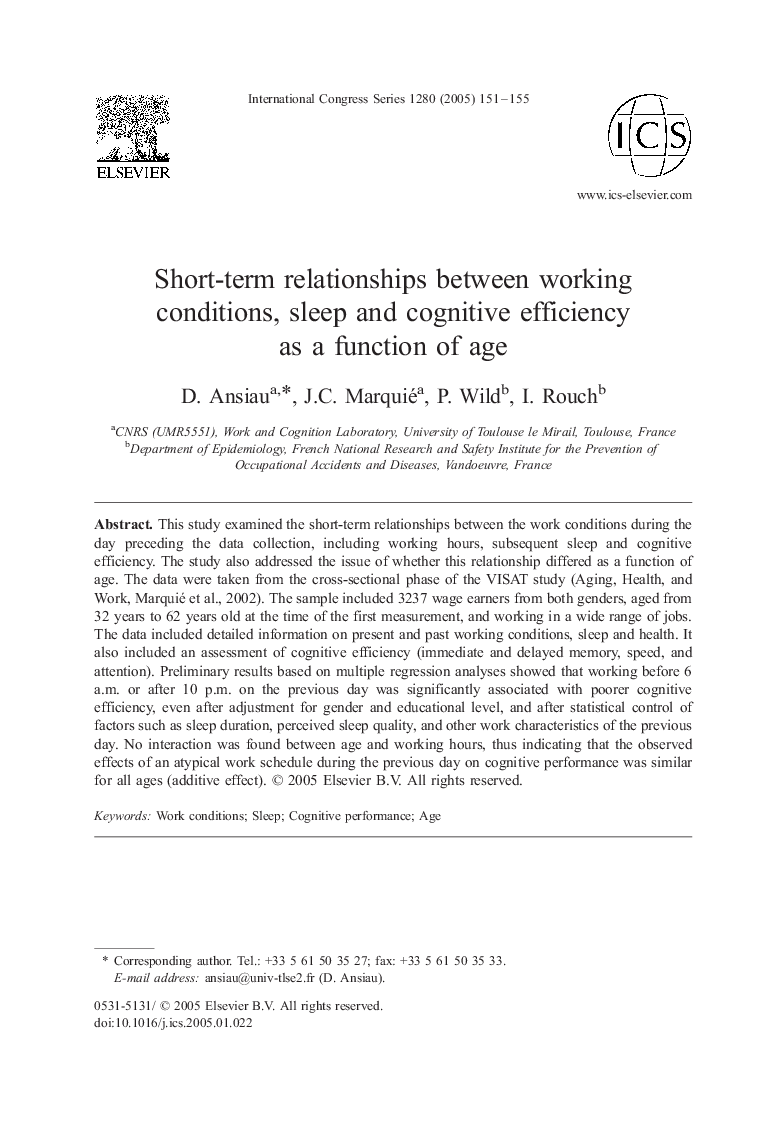| Article ID | Journal | Published Year | Pages | File Type |
|---|---|---|---|---|
| 9021267 | International Congress Series | 2005 | 5 Pages |
Abstract
This study examined the short-term relationships between the work conditions during the day preceding the data collection, including working hours, subsequent sleep and cognitive efficiency. The study also addressed the issue of whether this relationship differed as a function of age. The data were taken from the cross-sectional phase of the VISAT study (Aging, Health, and Work, Marquié et al., 2002). The sample included 3237 wage earners from both genders, aged from 32 years to 62 years old at the time of the first measurement, and working in a wide range of jobs. The data included detailed information on present and past working conditions, sleep and health. It also included an assessment of cognitive efficiency (immediate and delayed memory, speed, and attention). Preliminary results based on multiple regression analyses showed that working before 6 a.m. or after 10 p.m. on the previous day was significantly associated with poorer cognitive efficiency, even after adjustment for gender and educational level, and after statistical control of factors such as sleep duration, perceived sleep quality, and other work characteristics of the previous day. No interaction was found between age and working hours, thus indicating that the observed effects of an atypical work schedule during the previous day on cognitive performance was similar for all ages (additive effect).
Related Topics
Life Sciences
Biochemistry, Genetics and Molecular Biology
Molecular Biology
Authors
D. Ansiau, J.C. Marquié, P. Wild, I. Rouch,
